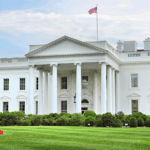In a bizarre legal opinion, the Seattle Ethics and Elections Commission (SEEC) has determined that collective bargaining agreements between the city and unions representing city employees are not contracts.
The tortured interpretation of the city’s elections laws was the only way the SEEC could permit labor unions representing city employees to continue contributing to candidates for city office. The decision also shielded several members of the Seattle City Council from liability for accepting such campaign contributions in 2017.
At issue is Seattle Municipal Code 2.04.601, passed by Seattle voters as part of I-122 in 2015, which states:
“No Mayor, City Council member or City Attorney or any candidate for any such position shall knowingly accept any contribution directly or indirectly from any entity or person who in the prior two years has earned or received more than $250,000, under a contractual relationship with the City.”
In a report released on June 5, the Freedom Foundation documented how the city of Seattle collected more than $250,000 in dues and fees from city employees’ wages on behalf of eight labor unions in 2016-17, as required by the collective bargaining agreements between the city and the unions. Those eight unions made political contributions to eight candidates for city offices in the 2017 elections.
Since labor unions are a person or entity, and since the unions in question received more than $250,000 from the city in the preceding two years under a contractual relationship with the city, the Freedom Foundation filed a complaint with the SEEC alleging the political contributions violated SMC 2.04.601.
On June 18, SEEC executive director Wayne Barnett dismissed the Freedom Foundation complaint because, in his opinion, the unions in question were not “contractors,” as that term is defined by Merriam-Webster’s Collegiate Dictionary, because they do not provide goods or services to the city. He did not dispute any of the factual allegations in the complaint.
Because the narrower dictionary definition of “contractor,” which would not encompass labor unions, differed from the expansive criteria spelled out in the plain text of the law itself, which covers any kind of “contractual relationship” and clearly applies to labor unions with collective bargaining agreements with the city, the Freedom Foundation appealed Barnett’s dismissal to the full Commission.
Before the Freedom Foundation’s appeal was heard by the SEEC, however, the Seattle City Council passed on June 25 Council Bill 119279. The bill exempted unions from the scope of SMC 2.04.601 by limiting the law to “any entity or person who in the prior two years has earned or received more than $250,000, under a contractual relationship to provide goods and services to the City.” (Emphasis added)
In other words, the bill changed the law to actually mean what Barnett alleged it meant from the beginning, a pretty good indication that Barnett’s original interpretation was flawed.
While it might have solved the politically inconvenient prospect of having certain unions prohibited from making political contributions in future city elections, the council’s actions did not settle the question of whether the unions’ 2017 contributions had been legally made.
The SEEC heard the Freedom Foundation’s appeal at its July 11 meeting.
During the hearing (full video available here, beginning at 46:30), none of the commissioners contested that the unions in question were persons or entities. None disputed that the unions had contributed to candidates for Seattle office. None disputed that the unions had received more than $250,000 over the prior two years from the city.
The only disputed point was whether the collective bargaining agreements requiring the city to collect and transmit dues to the unions in question constitute a “contractual relationship” for the purposes of Seattle Municipal Code 2.04.601.
As this author stated during the hearing,
“Is a collective bargaining agreement between a private ‘person or entity’ — a labor union — and the city a contract? Absolutely, I think it is. It’s a written agreement, it’s binding on both parties, it’s enforceable in courts of law.”
Though none of the commissioners could dispute this point, the only way the commissioners could see to let the unions and council candidates off the hook was to ignore the law’s broad applicability to “contractual relationships” and instead determine that the law only applied to the much narrower range of “contractors,” as defined by Merriam-Webster’s dictionary, providing goods and services to the city.
In essence, the SEEC was forced to reach the absurd conclusion that collective bargaining agreements are not contracts.
Of course, the progressive attorneys serving as the commissioners of the SEEC would never reach this conclusion in any other context. The progressive worldview holds the sanctity of union contracts (as collective bargaining agreements are often described) in too high regard.
And again, if the original law applying to “contractual relationships” has all along only meant “contracts to perform work or provide supplies,” as contends the SEEC, then why did the city council feel the need to change the law to apply only to “contractual relationships to provide goods and services to the City”? Probably because the broad language of original law did, obviously, include collective bargaining agreements.
The lessons to be taken from this exercise are few and simple. At least in Seattle, the rules do not apply equally to all, the views of unelected bureaucrats trump the plain text of laws passed by voters, and the all-important end of protecting progressive politicians and the Big Labor machine that supports them justifies the use of any means necessary.












